"The thing I have noticed is when the anecdotes and the data disagree, the anecdotes are usually right. There's something wrong with the way you are measuring it."
“I do love QE. It is one of my favorite things when we can do it. It's a great, great, great elixir, a great drug."
“Janet Yellen was the strongest advocate for unlimited quantitative easing."
- Betsy Duke, Fed Governor from 2008 to 2013 Quoted by Chris Leonard, in his great book, "The Lords of Easy Money: How the Federal Reserve Broke the American Economy."
"I like to nickname quantitative easing “monetary policy for rich people.”
You could quote me on that."
Drug Dealer Richard Fisher in March 2016
“We have yet to reach a full reckoning of the consequences of the era of easy money, but it's abundantly clear that it ruined us. The damage was incremental at first, but the perverse incentives and distortions of easy money--zero-interest rate policy (ZIRP), credit available without limits to those who are more equal than others--accelerated the institutionalization of these toxic dynamics throughout the economy and society. Fifteen long years later, the damage cannot be undone because the entire status quo is now dependent on the easy-money bubble for its survival.”
Yellen is a menace to (most of) society.
Don't underestimate how insane they will get to protect the kleptocracy.
“The 2-year and 5-year Treasury yields have even gone down in the face of massive coupon issuance. This challenges conventional wisdom, really everything you’ve heard about Treasuries. Supply actually matters very little as last year clearly showed.
The key takeaway here is that the Treasury market is sending us a clear message. Demand for safety and liquidity remains exceptionally high. This isn't a sign of a soft landing. In a soft landing scenario, you'd expect investors to seek exciting opportunities, not boring Treasuries. The market's behavior points to a different reality.”
A new and subtle Jeff Snider video: “Inside The Most INSANE Jobs Market In Recent History”
Friends of the show Trevor Hall and Le Shrub
“Today, we're sitting here, and we're saying, okay, China is blowing up, and core inflation is easing, and copper - who cares about copper? And then people always forget how long it takes. So imagine if we fast forward in two years time, and we're actually accelerating again, and we actually do try to build all those green energy projects, and, you know, rebuild the US grid, and we're like, oh crap, where's the copper?” - Shrub
BREIT
Investors pulled more than $13 billion out of Blackstone Real Estate Income Trust, or Breit, last year, a nontraded fund with a diversified property portfolio, including fast-growing types such as data centers and e-commerce warehouses as well as apartments in the Sunbelt, where rents are slowing. The redemptions were equivalent to almost 20% of the fund’s net asset value at the start of 2023.
They could have been worse if Breit hadn’t limited how much investors were able to withdraw. To avoid having to sell properties quickly, Breit’s terms stipulate that no more than 2% of the fund’s value can be redeemed each month, or 5% per quarter. Investors have wanted more cash back than Blackstone was obligated to give them for 14 consecutive months.
Blackstone does give Breit more leeway than its peers to calculate the value of its own property portfolio, though. According to analysts at Stanger Investment Banking, the portfolios of most nontraded REITs are appraised by an independent valuer at least quarterly. Breit asks an outside appraiser to give it a range of values, but has the final say on calculating the value of its assets.
Small vs Large Bank CRE Exposure
”Not one of them were even close to penciling.”
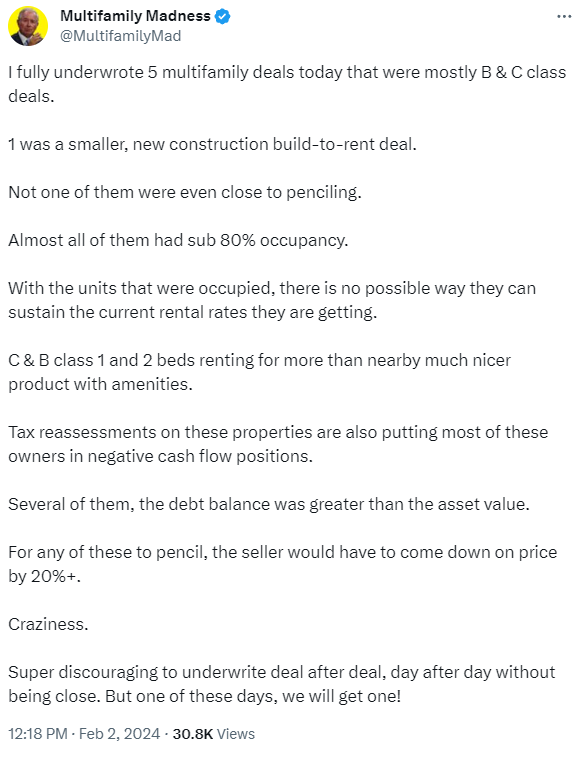
One of the things I heard is ‘we have to put money to work, because we've been on the sidelines for 18 to 24 months, we got to do a deal,’ and that really speaks to the heart of a lot of these private-equity groups, you know, maybe the Blackstones or some of these other big private-equity groups that have not made investments in the multifamily in the last 24 months, and some of their people that work for them…how do you justify your job if you're not really putting money into the deals?…how do we pay this guy $500,000 a year if he really hasn't done anything, or if she hasn't done anything?
“#1. Optimism is back.”
7 Takeaways from NMHC’s Annual Meeting
Multifamily forecast: “Jay Parsons, SVP, Chief Economist, RealPage, sees a steep drop off in apartment deliveries in 18 months. He notes that construction delays today aren’t short-term. This will re-accelerate rents once the near-term supply is absorbed. For now, midwestern cities were cited as the winners for 2024. They have the least new supply and a renewed focus on manufacturing could set these cities up to outperform. In general, the renter remains strong with wages growing faster than rents and consumer confidence ticking up.”
I don’t know about that. We shall see. Yes, wages may be - on average - rising today higher than rents, but we just had a huge spike in rents over the past few years.
Price levels > Rate of Change.
The Chicago Office Market, via Trepp
Chris Whalen: “Loss Given Default on urban progressive multifamily assets is now assumed by regulators to be > 100%.”
Q: What do Silicon Valley Bank, First Republic Bank, Signature Bank and New York Community Bank have in common?
A: Same auditor, KPMG.
First, the managers of NYCB apparently failed to recognize that going over $100 billion in assets is an enormously big deal for a community bank. The dreaded $100 billion demarcation line is well-known in the industry and especially for National Banks. Going big means that all aspects of the institution are now under additional scrutiny and that minimum levels for financial, systems and controls, and operational requirements have been raised.
Moreover, ever since NYCB jumped to an OCC charter in order to get the purchase of Flagstar approved in 2022, they have been living in a very different world than was the case under the NY Department of Financial Services. With the DFS, banks can negotiate, checkbook in hand. Tammany Hall with a Progressive Face. With the OCC, banks just get down on their knees and beg for forgiveness.
“Senator Warren and her colleagues are totally wrong about interest rates and home prices. The Fed’s decision to drop interest rates to zero in response to the COVID lockdown in 2020-21 drove up home prices dramatically and semi-permanently. Mortgage interest rates then rose for almost two years up to 8% in the third week of October 2023, but home prices continued to rise due to low supply.
If Senator Warren and her Democratic colleagues in the Senate want to address rising home prices, then they should ask Chair Powell to raise interest rates up into double digits and keep them elevated until we crater residential home prices. A lot of banks and nonbank mortgage lenders will fail in the process, but we can just add this to the economic tab for COVID.”
Whalen
U.S. Apartment Occupancy Hits Decade Low
“U.S. apartment occupancy hit a 10-year low at the end of 2023, as sizable new supply volumes weighed on market fundamentals.”
Nearly half of Americans age 18 to 29 are living with their parents
Interviews and correspondence with scores of renters around the country revealed deep financial insecurity, as their rents grew far faster than their incomes. Struggling with rising food costs, renters skipped meals, drove less to save gas money or eliminated social activities. While some renters put basic expenses on their credit cards, others borrowed money from friends and family or tapped their retirement funds. While some renters were unemployed or relied on public assistance, most interviewed for this article held full-time jobs and held college or postgraduate degrees.
For many, making ends meet feels like an impossible puzzle to solve.
“Will this ever end? Will it ever get better? Can I get out of this?” said Alex Larraza, 29, who said he pays 49 percent of his $55,000 annual salary toward rent and utilities for a duplex in North Kingstown, R.I. “It’s gotten so bad. Should I eat or should I worry about the heat getting turned off?”
Meanwhile…
“Doom Spending”
Hard to sympathize here, but a generation that feels their “financial futures are doomed no matter what” isn’t good for anyone. Personal finance education is largely non-existent for young people, and basic concepts (contracts, interest, banking etc.) should be taught in schools, instead of some of the other nonsense.
“A change in strategy.”
For the cost of a pizza slice, Boston Properties significantly increased its stake in a Midtown South office property. BXP acquired a 29 percent stake in 360 Park Avenue South for the basement price of $1, Crain’s reported. Essentially, the Canadian Pension Plan Investment Board was ready to wash its hands of the investment it made at the vacant building. While the pension fund already poured $71 million into the property, its exit will save CPP from some future obligations. The pension plan is being released from $46 million in future funding, as well as $5 million in annual interest payments stemming from BXP’s assumption of CPP’s share of the $220 million mortgage.
BXP bought the property in 2021 for $300 million, quickly launching an extensive $100 million renovation after the acquisition. The purchase, made in a joint venture with the Steinberg family’s Empire Asset Management, gave BXP a 42 percent stake, as well as leasing and management responsibility for the 20-story, 440,000-square-foot property. BXP chief executive officer Owen Thomas said CPP’s decision was indicative “of a change in strategy.”
Ouch.
Ontario, Canada
A small group of landlords who own hundreds of rental properties across the province have run out of money, owe over $144 million in unpaid loans and face dozens of lawsuits from creditors…Dylan Suitor, Ryan Molony and Aruba Butt are behind 11 now-insolvent corporations that face a "liquidity crisis" with only $100,000 in the bank, the documents say. The three received court-ordered protection, under the Companies' Creditors Arrangement Act (CCAA), from over 300 lenders until the end of March 2024…
The landlords currently own 406 properties where 1,000 tenants live, making them "one of the largest holders of residential real estate in Ontario”…Suitor is also a Realtor with over 200,000 followers on Instagram, where he shares business advice as a "self made" entrepreneur and real estate investor…Their efforts were "hampered" by the Bank of Canada's interest rate hikes beginning in March 2022 and falling home prices. They ran out of money to finish renovating some units, which now sit empty, and represent $350,000 a month in lost revenue, Clark said. More than 200 of the 631 rental units they own are currently empty…
“We're in a situation where people just are not going to be able to afford these homes”
Melody Wright makes the important point that it is house prices - more than rates - that has led to the current buyer/seller impasse.
Property taxes, insurance, and all the other rapidly rising costs of homeownership seem to have surprised many newbie homeowners, especially those who not long ago “were buying things without property inspections”!
“You know, we pulled forward a ton of demand during that boom.”
“Lower rates are not going to save the housing market, nor did they during the GFC.”
“I'm seeing things I didn't even see in the GFC. One of my jobs was to monitor the portfolio, monitor our credit scores, monitor our loan to value, or how much equity was in a home, and I tell you that I'm seeing credit scores lower than back then for loans that are not even in foreclosure! That's crazy because we know that credit scores have been inflated.”
I just got back from a 12-day trip across the country, similar to the one I did last year, and like last year I just came back kind of nauseous, kind of disbelieving in what I had seen out there, the amount of speculation, the number of homes that will not be occupied in the next 5 to 10 years that are being built to spec, and so you know what I've had to come to terms with is that I saw a lot of that last year in eight cities that I went to, but the mainstream narrative around this inventory shortage was just so powerful, and if most folks don't have time to go, you know, take a little trip to a new build sites and see what's going on.
So my point in this is that until we get awareness, nothing's going to happen, and I think that there are vested interest in keeping us unaware of how bad this is. Similar to commercial real estate, we have massive amounts of vacant inventory out there, be it multifamily, be it built for rent, be it new single family, be it existing homes, or Airbnb short-term rentals. We just went crazy in this last cycle thinking everybody wanted to stay in an Airbnb, thinking everybody was going to rent, nobody was going to buy, thinking everybody was going to buy, nobody was going to rent - I mean, nobody was really talking to each other, and so when awareness does happen it is going to be a bloodbath.
“Even though we might not have some of the crazier products [as in 2006-era], we've created the same situation with these lower requirements and looser sort of standards on some of this FHA, for instance.”
”The Total Return Roller Coaster”
“Of all the enemies to public liberty, war is, perhaps, the most to be dreaded…”
Of all the enemies to public liberty, war is, perhaps, the most to be dreaded, because it comprises and develops the germ of every other. War is the parent of armies; from these proceed debts and taxes; and armies, and debts, and taxes are the known instruments for bringing the many under the domination of the few. In war, too, the discretionary power of the Executive is extended; its influence in dealing out offices, honors, and emoluments is multiplied; and all the means of seducing the minds are added to those of subduing the force of the people. The same malignant aspect in republicanism may be traced in the inequality of fortunes and the opportunities of fraud growing out of a state of war, and in the degeneracy of manners and of morals engendered by both. No nation could reserve its freedom in the midst of continual warfare.
James Madison, “Political Observations,” 20 April 1795
US to Deploy Nukes in the UK for the First Time in 15 Years
“Russia has said it would view the deployment as an escalation”
"Science, though, is one thing, finance another. In science, progress is cumulative — we stand on the shoulders of giants. In finance, progress is cyclical — we keep stepping on the same rake."
Jim Grant








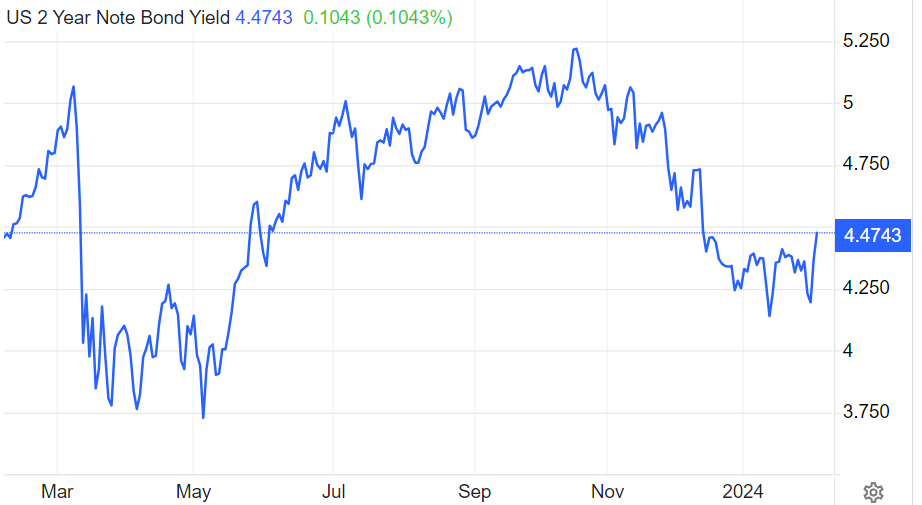
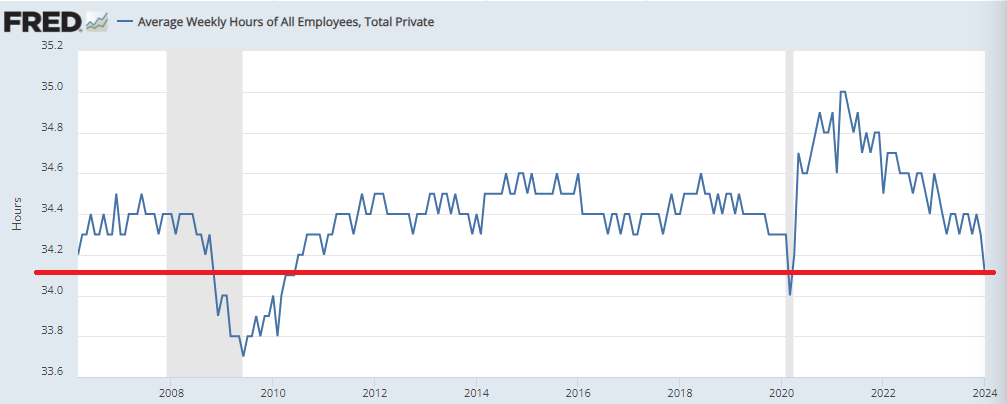

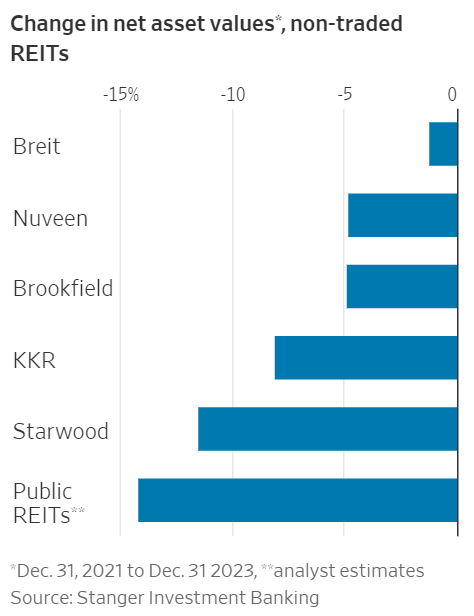



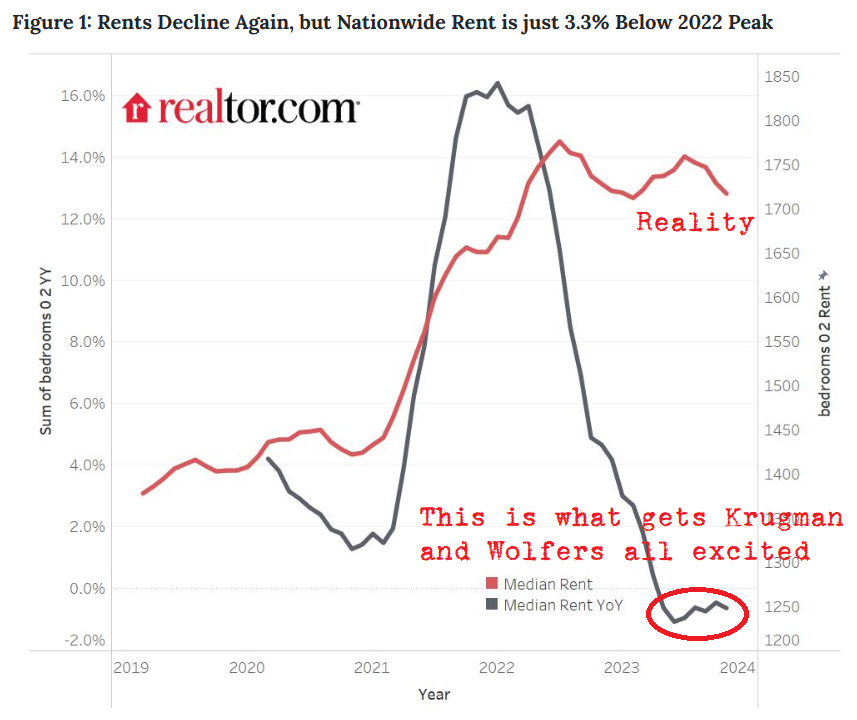


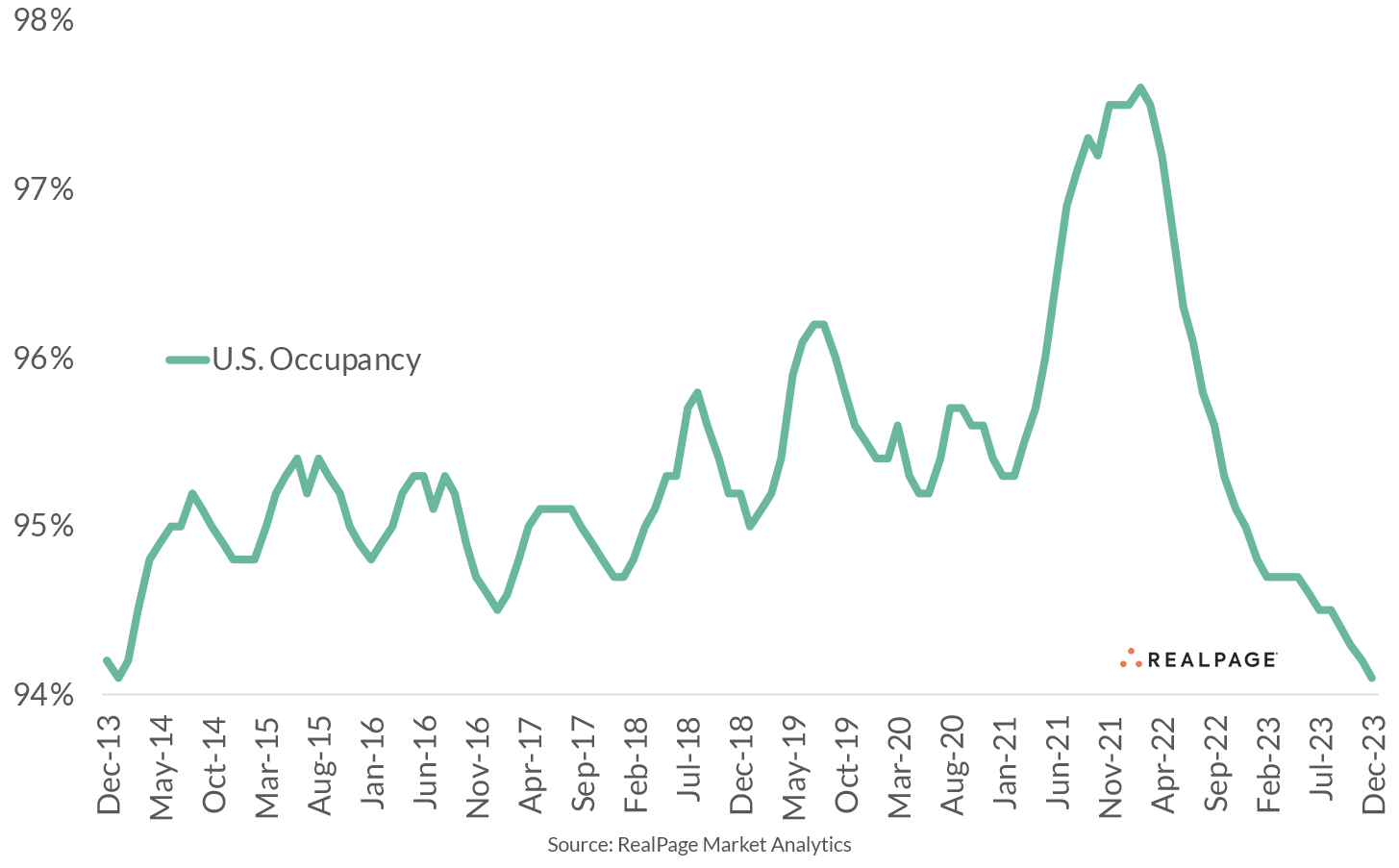

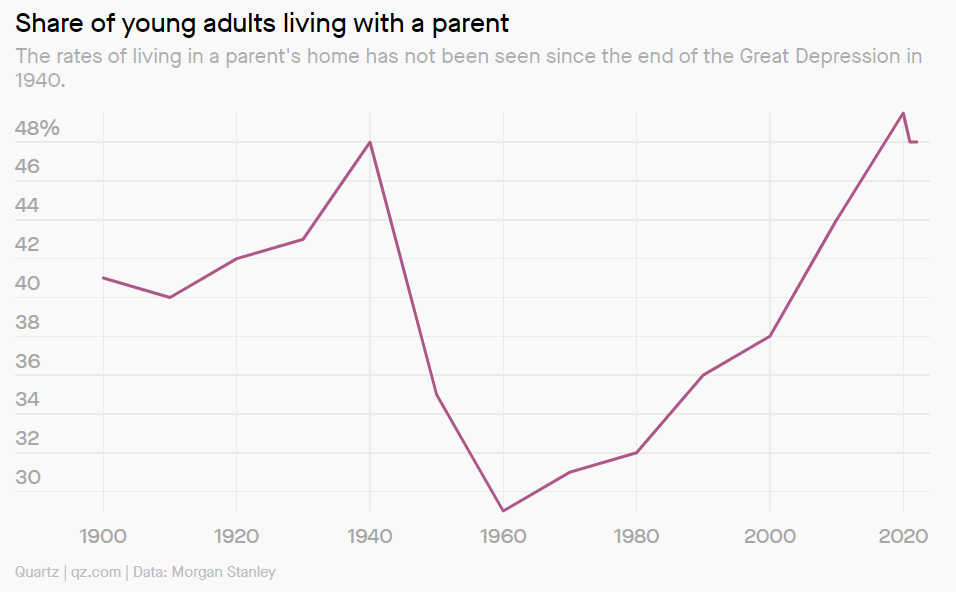








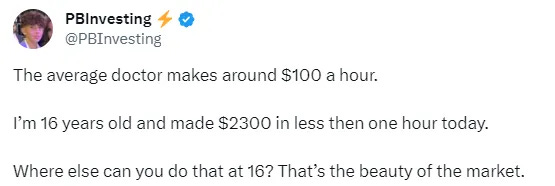
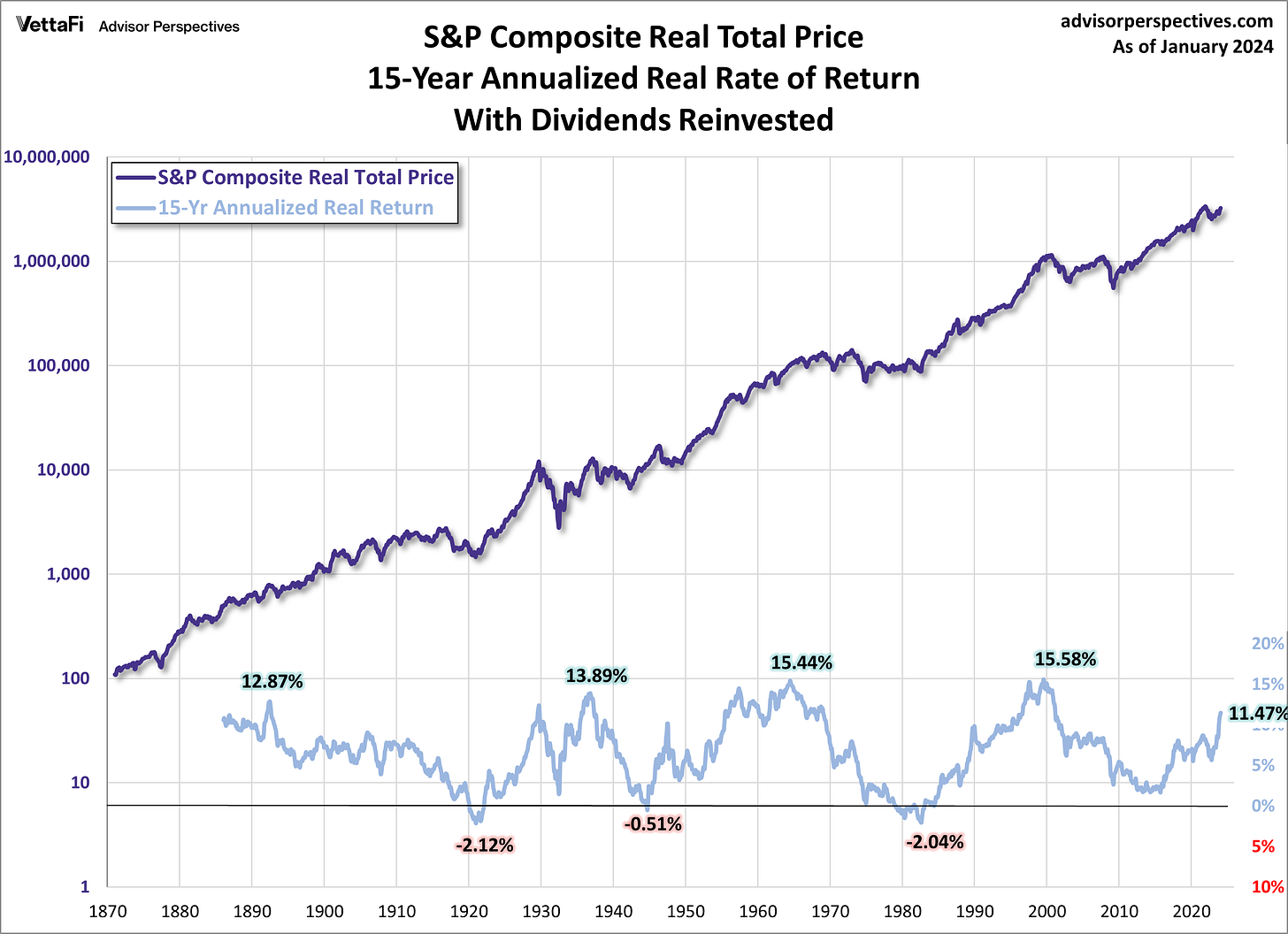


Thank you, Rudy. This week feels different like something has indeed broken with NYCB and feels very familiar to the time we got downgraded after our large writedowns and everyone was just pretending like it was "us".
Also, don't forget Mr. Jay Parsons' company is under investigation by the DOJ for price fixing with their algo...from the mouths of criminals....
Thank you again. I couldn't do this without you.
"The thing I have noticed is when the anecdotes and the data disagree, the anecdotes are usually right."
Particularly true when the data is provided by the BLS